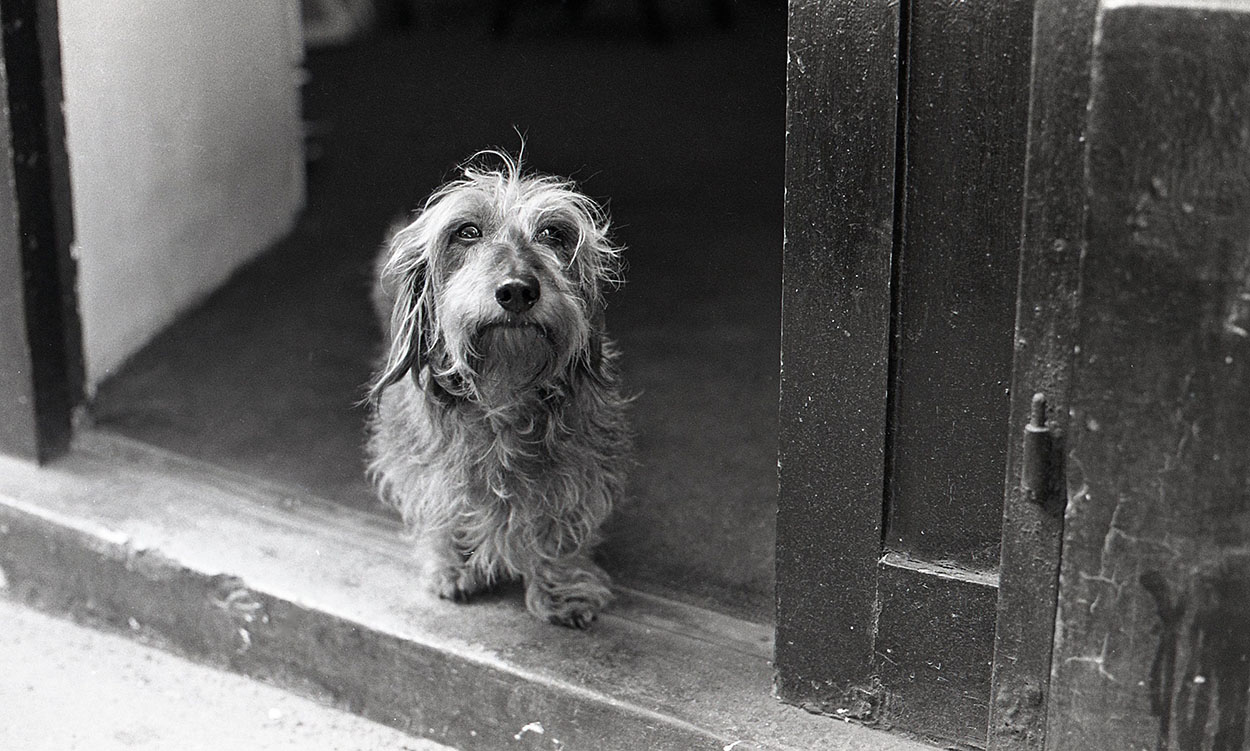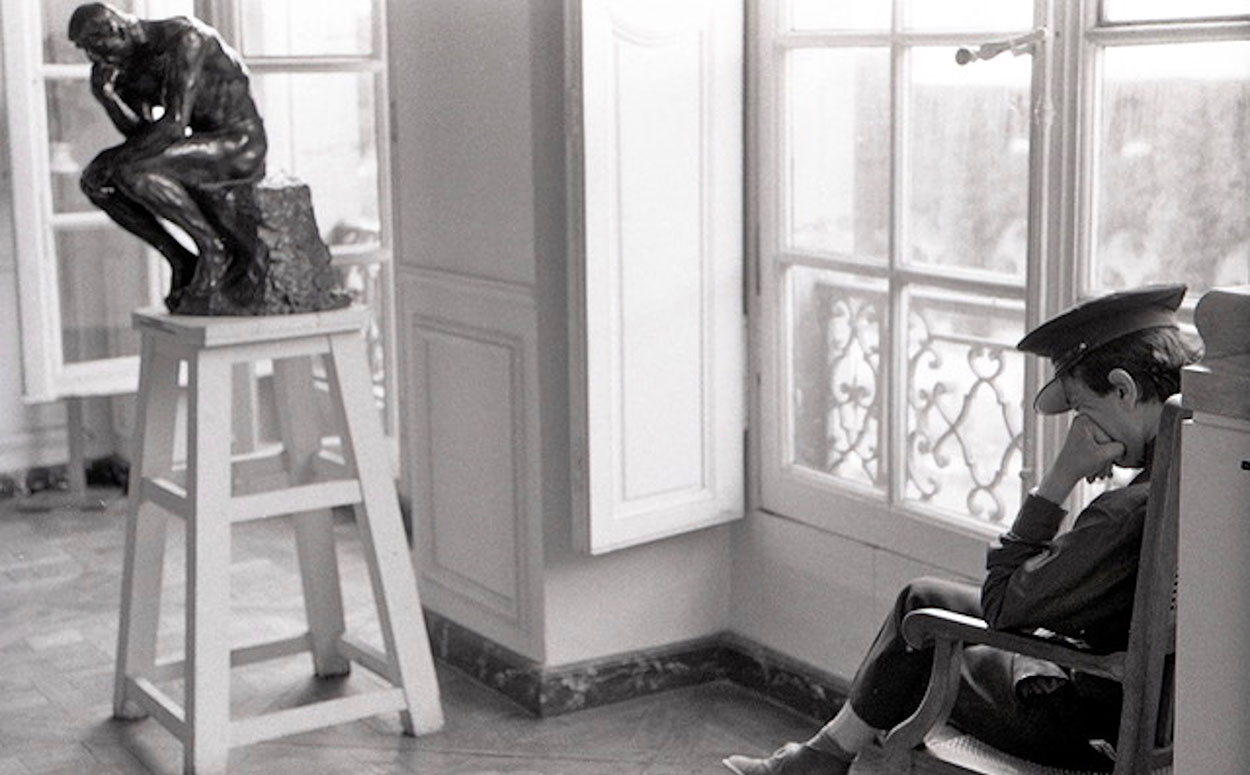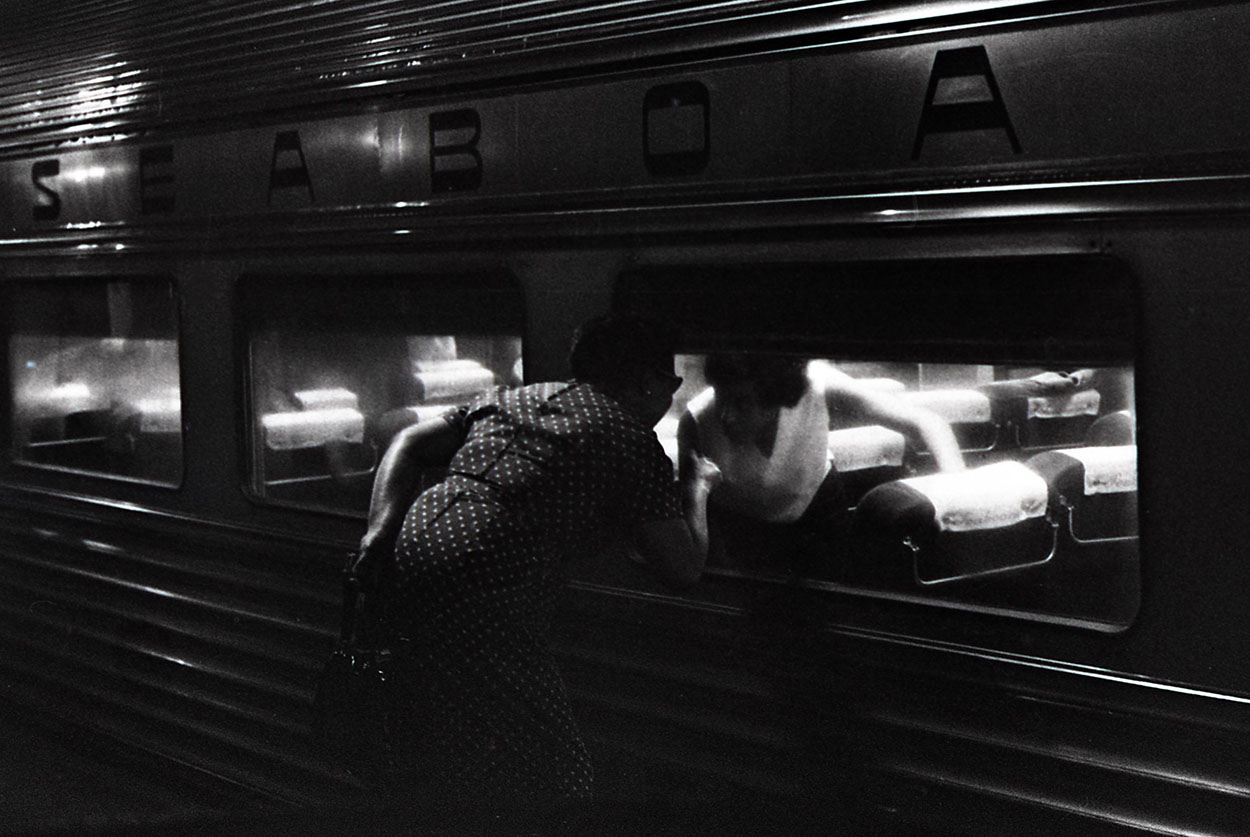Book Review: Recovered Memory, Paris & New York 1960-1980
Coney Island Parachute Jump. Courtesy of © Daylight Books
by Matt Fink
To be birthed and reared in one of the world’s great cities is both a boon and a misfortune. A boon because - well, that’s fairly apparent. The misfortune lies in never seeing your home metropolis with the wide eyes of a suburban or country yokel sucked into its orbit, either for the first time or on a repeat visit.
There is one obvious palliative, though, that remains for those suckled at the teat of the world’s great cities who wish to experience the thrill of fresh or renewed acquaintance: become what you hate the most - a tourist in another city.
Alone in Paris. Courtesy of © Daylight Books
Eiffel Tower Abstract. Courtesy of © Daylight Books
In the mid-seventies, two friends of photographer/writer Frank Van Riper moved to Paris. This gave Van Riper, a bred-in-the-bone New Yorker, all the excuse he needed to regularly visit the storied French capital, which he did over the course of the ensuing years. The pictures he took during this period, together with those taken during the previous ten years in New York, form the bulk of Recovered Memory, New York & Paris 1960-1980.
For Van Riper, cities are, simply put, people. That fact is reflected in both his new work’s text and images; the three essays breaking up the book’s visual element are bursting with wry anecdotes and piquant descriptions of everyday life and short on flowery descriptions of, say, the Louvre or the Woolworth Building. Likewise, the pictures themselves are less concerned with the hard, inscrutable surfaces of buttresses and wainscoting and support beams than with the yielding, revealing faces and bodies of the general populace. After all - and this is a self-evident truth that the Robert Moses types of the world forget in their rush towards “progress” - cities are environments designed (ostensibly, at least) with the movement and stasis of its human inhabitants in mind. Only with the advent of the automobile, arguably, did city planners forget that simple fact.
Bethesda Fountain, Central Park. Courtesy of © Daylight Books
New York Post. Courtesy of © Daylight Books.
Concierge, Paris. Courtesy of © Daylight Books.
Most of all, Recovered Memory is a lively, entertaining compare-and-contrast exercise, wrought using the writer’s own decades-distant, but still vivid, recollections. He draws from these echoes of memory several parallels between New York and Paris, such as the cultural offerings both are famous for: music, art, theater, architecture - even the availability of good bagels. But below that thin - if rich and nourishing - cultural dermis Van Riper’s scalpel slices deeper into the more profound, fundamental differences in attitude and temperament that define the residents of the two iconic locales. In particular, he relates an exchange between two New Yorkers that is difficult, at least for Van Riper, to imagine occurring in Paris:
“Two a.m.: West Farms Square in the Bronx, mid 1960s. At the corner all-night candy store, an old beggar lady wants a Coke.
“Guy behind the counter: ‘Coke’s ten cents.’
“‘I just want sumthin’ ta wet m’whistle,’ the old lady says in a wheezy rasp.
“Rather than ignore her or tell her to scram, the counter guy says, ‘Then I’ll just give ya f’cents woit.’ He mixes the drink in a white paper cone nestled in a metal holder. The drink looks an awful lot like a full one. I doubt he even took her money.”
McSorley’s Ale House, New York. Courtesy of © Daylight Books
Old Woman in Paris. Courtesy of © Daylight Books
Rodin Museum Guard. Courtesy of © Daylight Books
Finally, those who live for cities and their tantalizing promise of civic utopia will find a kindred spirit in Van Riper, especially those in a state of perpetual mourning for a place - be it Rome, San Francisco, Shanghai, Lagos or Kiev - that no longer exists as he/she once knew it.
The author himself expresses that bittersweet wrench of irreversible loss best in the book’s introduction: “You can’t go home again.”
Morning Window, Paris. Courtesy of © Daylight Books
Penn Station Farewell. Courtesy of © Daylight Books
For more information on Frank Van Riper and his body of work, click here.


















